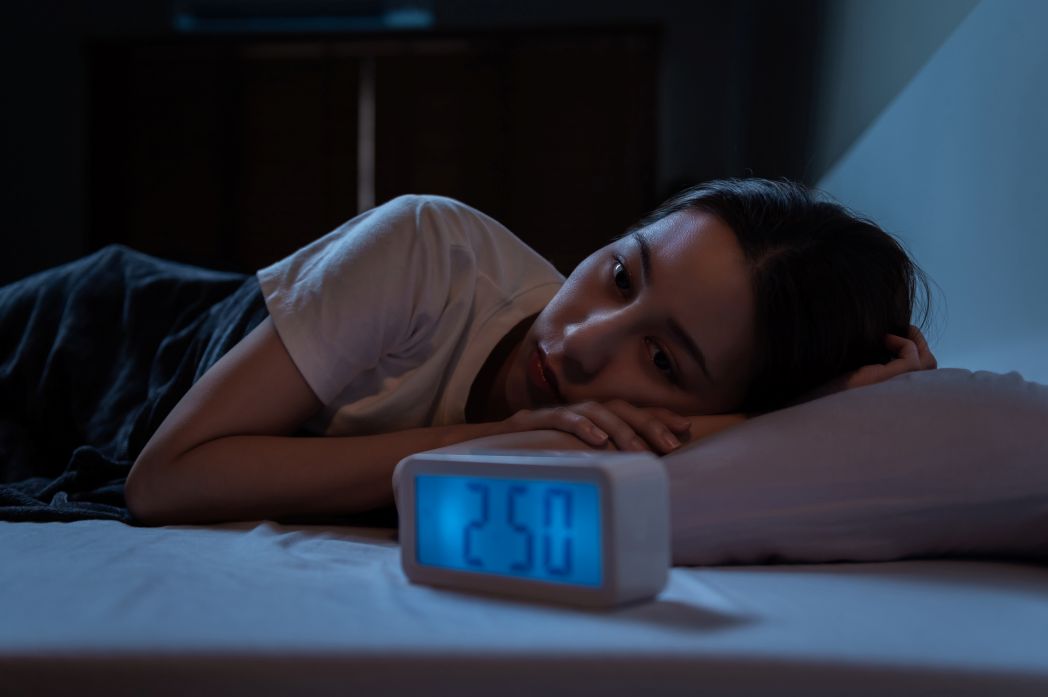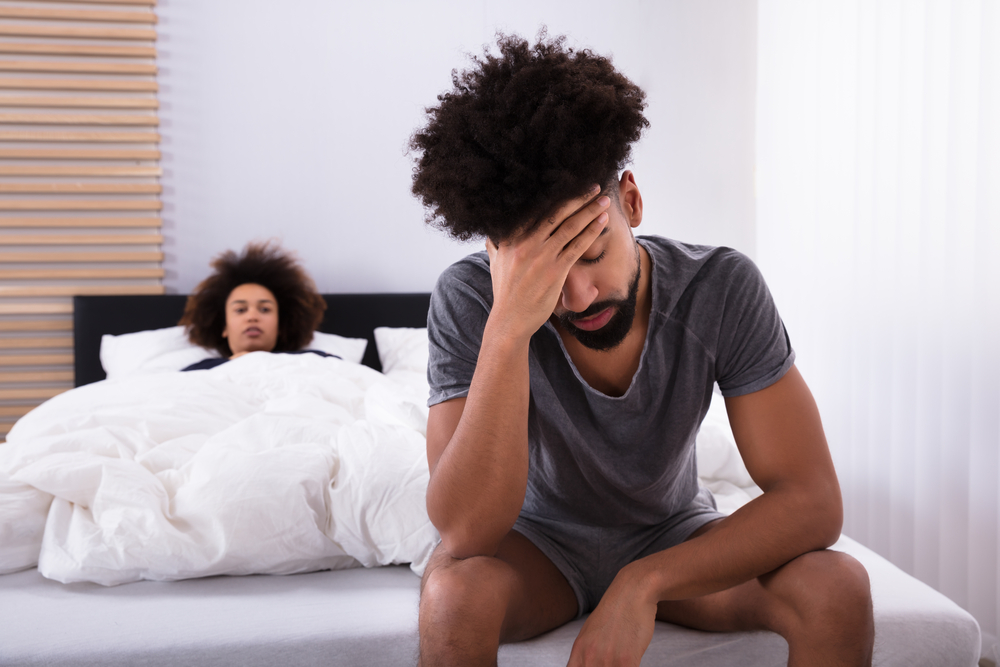
How do Insomnia and Sex Interact?

Insomnia is a condition that negatively affects the ability to fall asleep and stay asleep, leading to poor sleep quality. Over time, this can lead to issues with heart health, mental health, and diabetes, all of which have an influence on sexual function.
In the past two decades, there have been a few studies to assess any positive effects of sexual activity on sleep quality, with most concluding that there likely is not any meaningful effect. However, some of these studies have found that sexual activity ending in orgasm may improve sleep quality. Prolactin, a hormone strongly connected to sleep, tends to surge following an orgasm, which may lead to extra sleepiness afterward.
This appears to be a double-edged sword. For one, insomnia is known for having negative effects on sexual function, but satisfying sex may also contribute toward better sleep.
The Effects of Sleep – Or Lack Thereof
Most research on the topic supports that bad sleep leads to sexual dysfunction (SD). For men, this has much to do with the negative effects of insomnia on the cardiovascular system, which is largely what induces erections. Low blood pressure and poor circulation tend to make it harder for the penis to fill with blood long enough for satisfactory sex.
Testosterone is also affected by sleep. In men, testosterone is produced with sleep cycles, meaning it rises during sleep, and should be higher in the morning, reducing throughout the day, and then starting over. Interruptions in, or lack of, sleep interrupts the production of testosterone and may lead to lower levels in the morning and throughout the day. Testosterone is a hormone that plays a large role in sexual function, so lower levels may lead to erectile dysfunction (ED).
Additionally, poor sleep may contribute toward mental health issues like depression, which can be a cause of sexual dysfunction in both men and women. Depression, anxiety, and other mental health issues may contribute toward low sex drive, feelings of shame, and low self-esteem. Low self-esteem can be a large contributor toward ED, and the ability to reach orgasm.
One 2015 study, looking into sleep and female sexual function, observed that length of time spent sleeping influenced their participants’ desire for partnered sexual activity. The participants were also more easily aroused and lubricated. However, they were unable to pinpoint why. So, many sexual health professionals may encourage better and longer sleep for better sexual function.
Key points
- Insomnia contributes toward sexual dysfunction through a variety of adverse effects like mental health issues, irregular testosterone levels, and low blood pressure.
- More recent, conflicting research has posed the idea that sexual activity may help with insomnia: the boost in prolactin after an orgasm may help induce sleep.
- If you are concerned about sexual dysfunction or insomnia, it’s important to speak with a healthcare professional to come up with a plan that works for you.
Resources:
- Cho, J. W., & Duffy, J. F. (2019). Sleep, sleep disorders, and sexual dysfunction. The World Journal of Men’s Health, 37(3), 261. https://doi.org/10.5534/wjmh.180045
- Kalmbach, D. A., Arnedt, J. T., Pillai, V., & Ciesla, J. A. (2015). The impact of sleep on female sexual response and behavior: A pilot study. The Journal of Sexual Medicine, 12(5), 1221–1232. https://doi.org/10.1111/jsm.12858
- Martínez Vázquez, S., Hernández Martínez, A., Peinado Molina, R. A., & Martínez Galiano, J. M. (2023). Association between sexual function in women and sleep quality. Frontiers in Medicine, 10. https://doi.org/10.3389/fmed.2023.1196540
- Oesterling, C. F., Borg, C., Juhola, E., & Lancel, M. (2023). The influence of sexual activity on sleep: A diary study. Journal of Sleep Research, 32(4). https://doi.org/10.1111/jsr.13814






